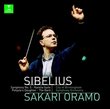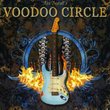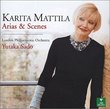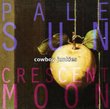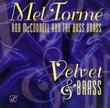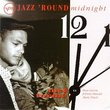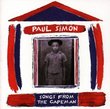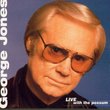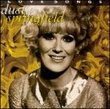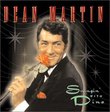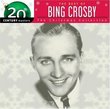| All Artists: Jake Heggie, Susan Graham, Frederica von Stade, Patrick Summers, San Francisco Opera Chorus and Orchestra Title: Dead Man Walking (Live recording of 2000 world premiere production) Members Wishing: 1 Total Copies: 0 Label: Erato Original Release Date: 1/1/2001 Re-Release Date: 1/8/2002 Genre: Classical Style: Opera & Classical Vocal Number of Discs: 2 SwapaCD Credits: 2 UPC: 685738623822 |
Search - Jake Heggie, Susan Graham, Frederica von Stade :: Dead Man Walking (Live recording of 2000 world premiere production)
 | Jake Heggie, Susan Graham, Frederica von Stade Dead Man Walking (Live recording of 2000 world premiere production) Genre: Classical
Dead Man Walking opens with a brutal rape-murder scene and ends with a passage, silent except for the clicks of the machine delivering fluids that execute a condemned man, followed by Susan Graham intoning the spiritual "H... more » |
CD DetailsSynopsis
Amazon.com Dead Man Walking opens with a brutal rape-murder scene and ends with a passage, silent except for the clicks of the machine delivering fluids that execute a condemned man, followed by Susan Graham intoning the spiritual "He will gather us around." Those searing scenes flank that rarity, a contemporary opera that deals with an important issue--the death penalty--with balance and empathy while sustaining dramatic tension, the narrative conveyed with musical alertness. Small wonder that the opera has been so successful. It's based on the book by Sister Helen Prejean and the acclaimed Tim Robbins film made from it about a nun who befriends a condemned man and brings him to face the redemptive truth of his actions. The recording was made during the San Francisco premiere of the opera and has all the intensity of a live performance, in addition to the overwhelming power of the story and the music. It would be hard to imagine a better performance, too. Susan Graham is perfect as Sister Helen, singing with purity of tone and fiery passion. She's delightful, too, in the humorous bits that leaven what would otherwise be a story too harrowing for the medium. Frederica von Stade, as the murderer's mother, is as good, and baritone John Packard as the condemned man is a real find--a singing actor totally convincing throughout, both as the hardened killer and later as the repentant man finally accepting responsibility for his deeds. The supporting cast is also first-rate, and Patrick Summers conducts with unerring sweep and fervor. Jake Heggie's score may lack hummable arias (other than the traditional hymn that plays so important a part throughout), but the orchestration is fresh, the vocal lines are grateful, and the range is wide, moving seamlessly from modern romanticism to bits of pop and rock. No small part of the opera's success is due to Terrence McNally's dramatically cohesive libretto. A triumph for all concerned. --Dan Davis Similar CDs
Similarly Requested CDs
|
CD ReviewsOpera for a twenty-first century audience Tyler | Walla Walla, WA United States | 05/08/2002 (5 out of 5 stars) "Jake Heggie's first opera, Dead Man Walking, is a triumph of musical and dramatic genius. McNally's libretto tightens the scope of Prejean's lengthy narrative to its dramatic essentials. The story is moving and poignant: an exploration of the intense and vivid emotions surrounding this deeply complicated process, but mixed with wonderful bits of humor and lighter sentiment. The duet about Las Vegas is particularly entertaining, and also touching in its personability.Heggie is at home writing for the voice, which is apparent in the hymn "He will gather us around", but also in Joe's aria "A Warm Night...", the Act 2 Duet between Sister Helen and Sister Rose, and also von Stade's moving goodbye to Joe in Act 2. It's rediculously inaccurate to say that there are no hummable tunes in the opera, and every one of those tunes has a special place on the dramatic trajectory of this powerful work. The singing is also fabulous. John Packard is better live than on recording, but the acting comes across wonderfully. Susan Graham's use of myriad vocal colors is fantastic, and her crystal diction is vital for this wonderfully vernacular libretto. It's hard to believe that this is a live recording; I've never been in an opera house where people were that quiet. Just further proof, I suppose, of the powerful grip that the opera has over an audience.The most important aspect of the work, though, is its accessibility to both veteran opera-philes and those who have very little exposure to the genre. It's inclusion of musical material more classified in a gospel or rock idiom and it's use of motives for emotional impact work to include the audience rather than alienate them. In contrast to much of contemporary opera, Dead Man Walking leaves the audience feeling included, and moved, and loved. I would recommend this recording to all levels of opera exposure, all musical tastes, and anyone who has ever had to deal with losing someone they love--it speaks to everyone." A Moving 20th Century Opera M Williams | San Francisco, CA USA | 04/07/2002 (5 out of 5 stars) "This opera is quite moving. While it doesn't have the showstoppers of a Donizetti or Rossini opera some of the reviewers are looking for (few, if any modern operas will as they are through-composed), it has some haunting music that is quite moving. Time indeed will tell, and I believe that it will show this opera to be one of the greatest from the recent additions to American opera....That is missing the point and missing the enjoyment of a beautiful work of American music. The performances are superb. Buy this recording and judge for yourself. You won't be disappointed." The Opera is Fabulous. musicguy_ry | Litchfield, Michigan United States | 06/20/2003 (4 out of 5 stars) "I recently saw the Opera in Detroit, Michigan. It was a wonderful experience (but isn't going to the opera always a wonderful experience?). I thought it was well done-- the music was a tad too 20-th Century for my tastes, but I still loved it!"
|

 Track Listings (17) - Disc #1
Track Listings (17) - Disc #1